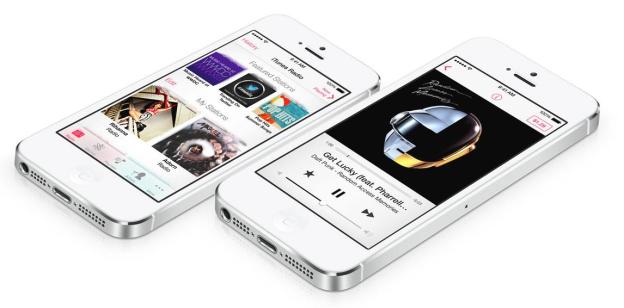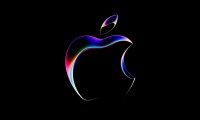
After years of hype and speculation, Apple finally revealed its “Pandora killer” today with iTunes Radio. Yes, the easy iRadio name was passed up, but it’s still the streaming music service we anticipated.
While Apple was incredibly light on iTunes Radio details (par for the course), we know a few things:
- iTunes Radio can tell you what songs are trending on Twitter
- It will be built into iOS 7, so it’s accessible from the iPhone, iPod Touch, or iPad – and will also come installed on Apple TV, and can be accessed via Macs as well
- It’s free with ads, but if you’re a Match subscriber, it’s ad free (Match is $25 a year)
- iTunes Radio is launching in the U.S. first, adding other countries in the future
Otherwise, it’s exactly what you think it is: It’s a Pandora-like radio service that allows you to make stations based on artists or songs. You can buy music (via iTunes, of course) from this app, and share out stations to social networks – we’ll assume this means Twitter and Facebook, since both platforms already partner with Apple.
We have no release date (sometime in fall), no feature breakdown, no glimpse of the interface beyond some early screenshots.

Rights availability plays a major factor in the streaming race – we want to hear the songs we want to hear – but in this particular case, a few other things might end up mattering more. With every player in this crowded market offering (more or less) comparable catalogs now, other elements might become the differentiating factors that sell one service over another. So what does iTunes Radio offer to set it apart?
The user conundrum
Spotify has approximately 24 million users globally; Pandora is sitting around the 70 million mark. Having launched less than a month ago, Google Play Music All Access falls behind both of these. iTunes, however, blows all three out of the water with 200 million users.
Of course, that number includes those using the iTunes store to download apps – but even still, Apple has been able to use its desktop and mobile platforms to engage people in its music-commerce network. Adding more functionality certainly can’t hurt iTunes. Even some services seemingly competing with iTunes, like Pandora, send users to it when they want to purchase music.
But there’s a catch 22 to all this: iTunes Radio won’t be available to anyone on any platform. Sure, getting rolled into iOS and iTunes gives iTunes Radio a damn big pile of users, but the ability to grow further won’t be there. Own an Android phone? You won’t be an iTunes Radio user, that’s for sure.
We’ve argued time and time again that digital content and ownership only truly work in a user’s favor when they aren’t platform-specific. Otherwise, you’re buying into a walled garden that you may never be able to escape without leaving behind all of the music and other media you’ve amassed there.
It’s why Spotify, for all its radio faults, is such an attractive option: You can listen via any browser, you can set up a desktop client, you can use your iOS or Android device – be it a phone or tablet. Spotify doesn’t care who you are or what you use – you can use its service. The same applies to Pandora.
But can Apple play DJ?

Besides this limited availability, there’s the question of whether Apple’s song-picking algorithm is any good. Many have tried and failed to reproduce what Pandora pulled off with its “Music Genome Project,” and Apple could easily be next. Even Spotify, with all of its sophisticated software and social prowess, has largely bombed when it comes to predicting new music.
iTunes and the App Store haven’t been lauded for their predictive powers. Genius was great in theory, but mediocre in application (see Exhibit A to the right). Third parties even made up for Apple’s incompetence by releasing apps that suggested what apps you might like … until Apple starting curbing what they were allowed to do.
No easy battle
It’s difficult to imagine that iTunes Radio will be able to outperform the current, very good, selection of platform-agnostic options. But that’s not to say they’re invulnerable: Pandora’s algorithm and discovery are great, but it doesn’t offer storage or singular track playlist creation; Spotify’s storage, catalog, and personal creation are wonderful, but its radio feature sucks, and discovery is hit or miss.
Until we get our hands on iTunes Radio, it’s difficult to know how exactly it will challenge its streaming brethren – but don’t assume that a heavyweight platform means the more singular services are about to sink into oblivion. Apple has a lot more to prove, and a slick interface and Led Zeppelin aren’t going to cut it.



